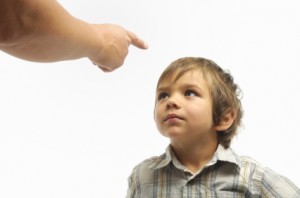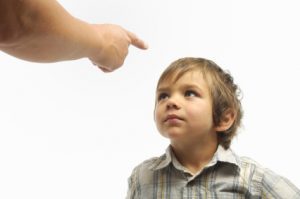“I don’t know”, “I don’t remember”, “I didn’t do it” – Opportunities to Teach Responsibility
 What is a parent to do when they ask their child “What happened” and are met with “I don’t remember”, “I didn’t do it” or “I don’t know?” This can be very frustrating when we are trying to work out skirmishes between siblings and are confounded by such evasive responses. These responses thwart our goals as parents to teach children, responsibility, respect, consideration and right from wrong. They may leave us wondering if in fact the child really does not remember or is lying, which then can further inflame the situation. Often we resort to either giving up or metering out consequences so we can get on with life. However, digging into the nature of these conflicts can provide invaluable opportunities to support the very social and emotional development we are striving for.
What is a parent to do when they ask their child “What happened” and are met with “I don’t remember”, “I didn’t do it” or “I don’t know?” This can be very frustrating when we are trying to work out skirmishes between siblings and are confounded by such evasive responses. These responses thwart our goals as parents to teach children, responsibility, respect, consideration and right from wrong. They may leave us wondering if in fact the child really does not remember or is lying, which then can further inflame the situation. Often we resort to either giving up or metering out consequences so we can get on with life. However, digging into the nature of these conflicts can provide invaluable opportunities to support the very social and emotional development we are striving for.
Children sometimes avoid responding to “What happened?” if the tone strikes them as harsh, accusatory or if they fear the consequences. Often we as parents get strident in our tone, because we are scared (like when someone is hurt) or angry (like when something gets broken). After all, who volunteers to face an inquisition! Our first step is to manage safety and then to manage our tone. A neutral tone is more likely to invite a response than one that is fearful or critical.
Once we have modulated our tone, we need to consider what the benefit is to the child to “not remember.” Most of us, when confronted by an authority figure, will first try to avoid or explain ourselves. How many of us when pulled over by a policeman for speeding say, “You got me, I was going 85?” Children are learning to manage the tension between their desires/impulses and limits/rules. It is a skill that has to be developed. Direct confrontation can often trigger shame and anxiety. A simple shift to focusing on getting a coherent narrative about the event is a valuable tool we can use as parents to help with accountability. By making this pivot, anxiety can be lowered. When anxiety is lowered, learning can happen. The narrative can be far more powerful in helping a child learn about what triggers their impulses, and managing limits is more likely. After this is understood, appropriate apologies (interpersonal social repair) and consequences can be considered.
There is another thing to keep in mind if a child has difficulty in explaining events in a clear organized manner in response to open-ended questions. Children with learning disabilities, ADHD or children on the autistic spectrum often struggle with sequencing their thoughts, word finding and perspective taking. If there are weaknesses in the child’s expressive language abilities it is best to consider how to scaffold questions reflecting on what happened rather than asking, “What happened?” Questions like “Who was there?” “What were you doing before?” “Then what happened?” “I wonder if that made you feel (sad/mad/hurt/etc.)?” “If you were feeling that way, what did you do next?” can be very helpful in both clarifying the conflict in the short run and as well as supporting development of sequencing and perspective taking in the long run
Finally, a child may be getting a secondary gain by claiming, “I don’t know” or “I didn’t do it.” When it is a sibling dispute, this can sometimes lead us as parents to make a guess and punish the older child who “should know better.” This, unfortunately, can reward the behavior of the younger child who succeeds in getting the older sibling in trouble. Alternatively, the sibling that doesn’t “get in trouble” can find it rewarding if they are successful in deflecting responsibility for their actions. Another unfortunate outcome can be that, out of frustration, we give a consequence without a clear sense of what transpired, which opens the opportunity for future misunderstandings. This then can set up a cycle of siblings provoking one another, as they continue to communicate their frustration and anger with each other by acting out.
Ultimately to teach responsibility, respect, consideration and right from wrong there must be trust. Trust is established when there is understanding. There can be many roadblocks on the way to getting a narrative and building understanding in a squabble. However, facilitating this process, in spite of how frustrating it can be, is well worth the effort.









Leave a Reply